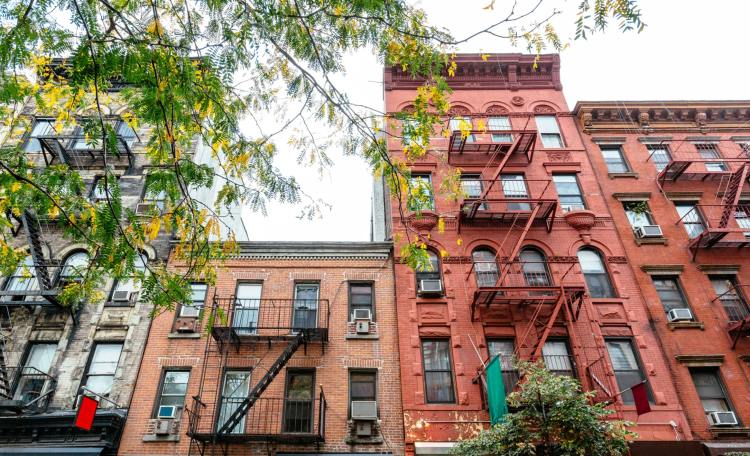
New York City is called the Big Apple, the City of Dreams, and the City That Never Sleeps. It is also home to more than eight million people, with affordable housing a challenge for many of them.
Whether you are searching for an apartment or have signed a lease on a new residence, you should know your rights as a tenant in New York. This article offers an overview of 10 of the key rights had by tenants in New York.
1. Security Deposit
New York state law requires landlords to charge no more than one month’s rent as a security deposit. It also states that the deposit must be returned within 14 days after the lease ends. Landlords must also give tenants advance notice about any deductions from the security deposit.
2. Utilities
New York landlords are required by law to provide a safe and livable environment for their tenants. Providing water and heat falls under both categories. The law states that landlords must provide hot water every day of the year at the minimum temperature of 120 degrees Fahrenheit. Landlords also must provide heat between October 1 and May 31 (under specific conditions).
3. Right to Withhold Rent
New York tenants have the right to a rental property that meets basic structural, health, and safety standards. As a result, tenants have the right to withhold rent payments if a landlord fails to make emergency repairs, such as fixing a broken entry door, heater, or water pipe. (There are restrictions on the amount of time you must notify the landlord of the needed repair and the kinds of repairs that qualify.)
4. Landlord Access to Rental Property
New York state law states that a landlord must give a tenant one week’s notice for repairs and 24 hours’ notice for inspections. However, if there is an emergency, such as a fire or a gas or water leak, the law states that it is in both parties’ interest for the landlord to enter immediately.
5. Termination and Eviction Rules
New York law specifies how and when a landlord may terminate a lease agreement. If a landlord wants to terminate a lease early, they will need to have a just cause, such as non-payment of rent or another violation of the lease or rental agreement. Then the landlord must give the tenant written notice.
If the landlord does not have a cause for ending a lease early, they must wait until the end of the rental period before expecting a tenant to move out. In this case, the landlord does not need to give the tenant notice unless the lease agreement specifies that notice of non-renewal of the lease is required.
6. Fair Housing
Federal and state laws prevent landlords from discriminating against renters based on their race, religion, gender, creed, nationality, disability, physical or mental disability, or sexual orientation.
7. Landlord Retaliation
Some tenants, unfortunately, experience harassment, rent hikes, or threats of eviction after they make complaints about needed repairs or pest infestations. State and local laws protect tenants from these types of landlord retaliation as long as the tenant has acted within their legal rights.
8. Rent Increases
Under New York law, landlords must give tenants 30 days’ notice if they plan to raise the rent by 5% or more. Recent legislation protects tenants in rent-regulated apartments from substantial rent increases.
If there have been improvements to the property, the law caps rent increases to 2% per year, and raising the rent on individual units because of renovations is subject to limits by state and local laws.
9. Family members and roommates
New York tenants have a right to live with immediate family members as long as the residence does not become overcrowded. Exceptions may apply to those who receive a rent subsidy or rent exemption. And residents of public housing must follow strict guidelines.
If you live in a privately-owned building and are the only person who signed your lease, you have the right to share your apartment with one other adult not related to you and that person’s dependent children.
You do not have a right to a roommate if you meet the following criteria:
- you are in public housing (or most subsidized housing)
- two or more people have signed the lease
- your lease agreement prohibits you from living with another person
10. Subletting
Most New York renters have the legal right to sublet their homes. However, there are strict rules to follow.
First, New York law requires that the sublet terms are temporary and that the tenant on the lease plans to return to the unit. Then, the tenant must request permission from their landlord. This request must be in writing and sent by certified mail with a return receipt. The request must include the following information:
- start and end date of the sublet
- reason for the sublet
- name of the proposed subtenant
- permanent home address of the subtenant
- tenant’s address during the sublease
- written consent of any co-tenant or lease guarantor
- copy of the proposed sublease signed by both the tenant and the proposed subtenant, along with a copy of the original lease
After receiving the request, the landlord has 10 days to request any additional information. Then, the landlord has 30 days to reply in writing. If the landlord denies the request, they must provide a written explanation. No response within 30 days is considered as consent to the sublease.
We hope you enjoyed this blog about 10 Important Tenant Rights in New York. Check out the following post 5 Tips to Ease the Process of Collecting Your Rent Accurately and On Time for more additional tips!
Have Experience in the Moving Industry? Want an Additional Income Stream? Work With Us!
We have created a program that will allow relocation consultants to take your professional career to the next level from the comfort of your remote location. We’ll help every step of the process. Click here to learn more!





